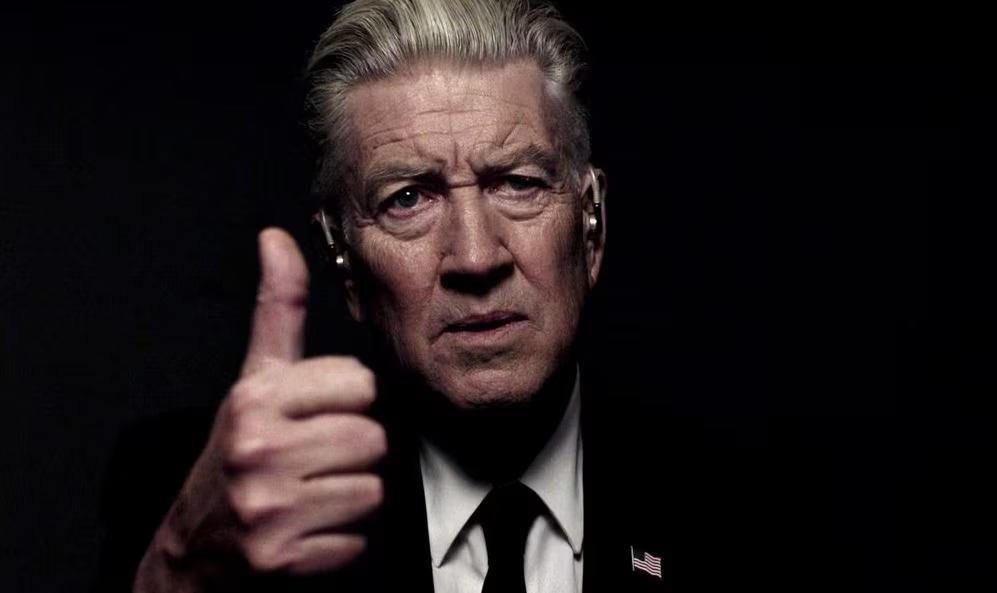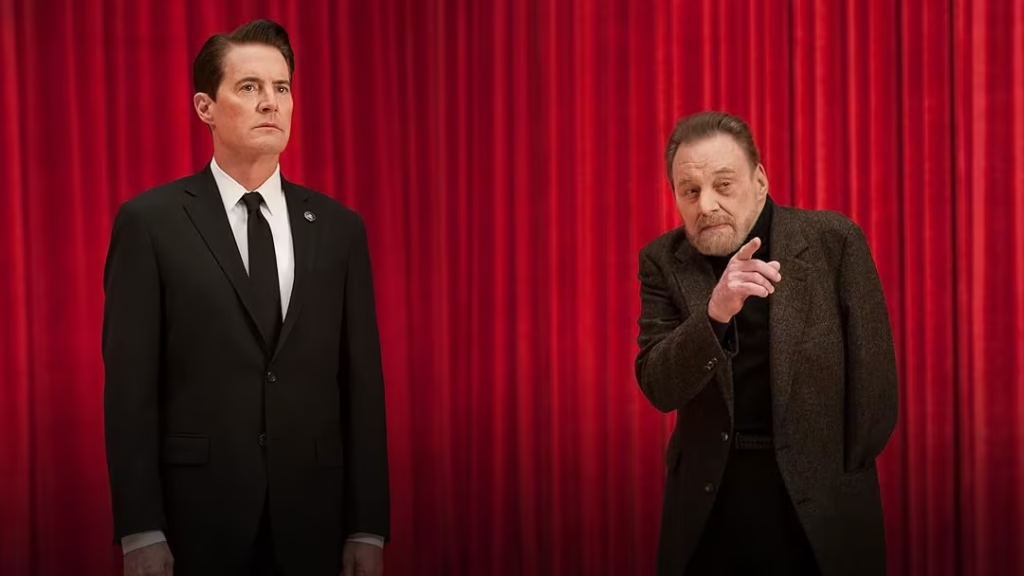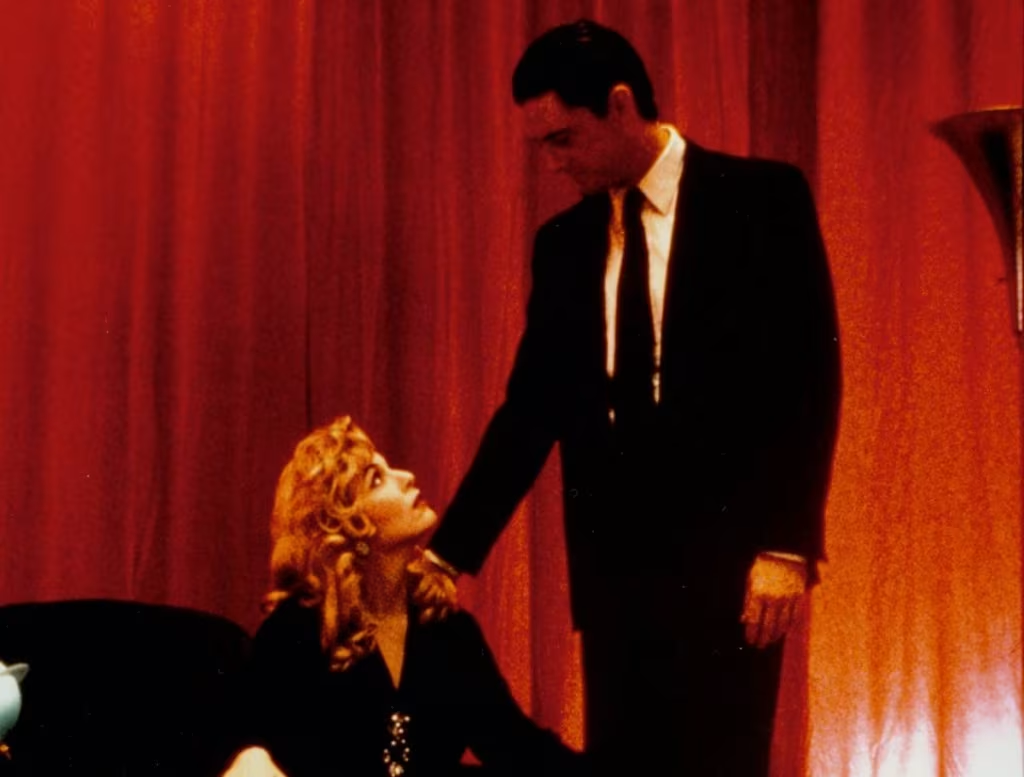David Lynch: The Ultimate Realist- My Life in Horror
David Lynch has no interest in capitulating to that dread. Rather, he puts it up in screen, tells us that the experience of that anxiety is part of the point of being. Even if it does unsettle, disturb and/or terrify, it’s what we are, where we live, and only through its acknowledgement can we learn to be more, to ascend ourselves in the way that characters like Laura Palmer, Dale Cooper etc do.
David Lynch: The Ultimate Realist- My Life in Horror

There is a way of seeing the world that might be called “Lynchian.” To many, the term has overtones of surrealism, strangeness, absurd exaggerations and juxtapositions. However, the body of work David Lynch leaves behind expresses -and explores- a “reality” more fundamental and sincere than any number of social tracts or mundane dramas.
David Lynch concerned himself with the dream-life of humanity, first and foremost, and this is not excluded to our sleeping flights of imagination or momentary flits into fantasy: In Lynch’s work, there’s no distinction between the abstract and the actual, no membrane between the conscious and subconscious; everything inter-bleeds, overlaps and becomes part of the same essential engine.
For David Lynch, the dream-life of humanity is more real than real; our operation in the abstract where we are most sincere and fundamentally ourselves. Notions of absolute or prescribed “reality” collapse into kaleidoscopic conditions of signs and signifiers, symbols and magic spells. The most mundane and familiar becomes freighted with poetic import, myths spring from kitchens and bedrooms and back gardens.
We live in strange poetry, according to Lynch’s stories; bizarre states that can be as ominous and terrifying in their confusions as they are transcendental in their revelations. All things interconnect at the point of abstraction, where they become ideas of themselves in the eyes and minds of humanity. In that, the world is a seething miasma of conflicting, competing, contradictory dreamscapes, where magic and monsters abound, where entities can occur in multiple spaces at once, where we can be both alive and dead and neither in conditions of quantum flux.
Attempting to impose definition or explanation on the vast body of David Lynch’s work is to miss the point: He doesn’t provide us with ciphers to unpick, messages to decode. Rather, he expresses something more visceral and fundamental through imagery; something we struggle to articulate in words yet know to be fundamentally true: The inalienable strangeness of our conditions on this earth, in these bags-of-bones we call bodies, in our delusions of linear continuity, when our deeper, more fundamental selves suspect a more protean, chaotic truth.
We are art, in David Lynch’s purview; walking, breathing, dreaming art, informing the dream around us as much as it shapes and influences us, sweating new worlds with every heartbeat, and authoring apocalypse on as many.
The dream life.
David Lynch argues without saying a word, is not separate from the material, nor is one fundamental over the other: Physical reality only has weight and gravity when we invest it with meaning, poetry, and it indulges us by responding, demonstrating its fluidity. Our dreams and nightmares become the program of the engine; defining its function and purpose. We are not separate from it, nor are we from one another: There is a communal aspect to the dream-life of the species, one that can potentially rewrite creation or redefine what that means.
In every work the man put his name to, the notion of reality-as-ideology is a basic assumption; not a single narrative he crafted exists beyond that remit. We understand what reality is based on a complex and fluid interplay of bias, desire, consensus and prescription; we are both told what reality is, how to define that notion, and decide (consciously and unconsciously) based on a host of complex -often idiosyncratic- factors.

David Lynch understands this in a way so few creators, even in adjacent milieus, do. He infuses his work with the liminality, the ambiguity, the protean and malleable qualities of a dream, a simulated or imagined universe, and makes no bones about artifice or theatricality. This is how reality works, this is what the phenomena and experience thereof is, and few creators in all human history come so close as Lynch to expressing the true, visceral immediacy of it.
David Lynch allows for no compromise or cowardice in this vision:
It simply is, throughout his work, from the most doggedly “realist” to the most surreal: Ideas and concepts have weight, animus and volition in this fractal, oneiric condition. The infernal and semi-divine entities of Twin Peaks’s and Fire Walk With Me’s metaphysics, for example, are not separate from the waking world or humanity; they operate within it, derive from it and rely upon it: For them to sustain, they must engage in games of manipulation with the humanity that informs them, such that some -such as the demonic Bob- directly impose themselves upon the mundane world.
Bob is of particular significance in the film, Fire Walk With Me, where he manifests and exemplifies Lynch’s fascination with the lack of space between the lived and the dreamed: Bob is at once an external invader in the lives of the Palmers, a parasitic, invading entity, but also an expression, a manifestation, of misogyny and abuse.
Whereas in the series, the possession is more clear cut, here, it’s implied that Bob gains a foothold in Leland Palmer’s soul because the inclination towards abuse is already present (Bob merely exaggerates what’s already there). In this, Bob is simultaneously nightmare and waking, mundane horror; he is neither entirely one thing nor the other, but operates on the fractious meridian where such distinctions lose all coherence and meaning.

Laura herself, along with several others, becomes a similar phenomena; an abstraction of herself within the labyrinthine metaphysics of the Black and White lodges: As well as being a normal teenage girl, suffering in terrible circumstances, she’s also a fulcrum upon which the world turns; a vessel for all suffering, all the hurt and disgrace of womanhood throughout history. Her torment and death become ritualistic; bleakly necessary within the strange metaphysics David Lynch establishes. Without the event of her murder/sacrifice, the scales are upset, balance collapses and chaos reigns.
In its aftermath, she becomes the very “angel” so many of the towns-folk describe her as. However, this being a Lynchian work, the term doesn’t imply some absolute condition or moral dimension: The entity she becomes is ambiguous in its aspect and import; very much the daughter of suffering she was conditioned to be, but also an agent of female rage and vengeance against historical abuse, a Cassandrine prophetess who understands what’s unfolding within the town and beyond but lacks the means of clear communication with those who might influence it.
Within Laura, we find embodied the clearest vision of how David Lynch perceives humanity and reality: We are at once mundane and transcendent, finite, physical, vulnerable, but also abstract and eternal: We are living fluxes of contradictory selves, and the dreams of those selves in all their potential. And reality? Reality is an unfortunate linguistic reduction, a synthesis of the condition in which we find ourselves, where we operate from day to day.
Laura is the angel that’s spoken of with such reverence and lament by those who knew her. She is also the abuse victim circumstance made of her, the drug-addict, the “whore” of patriarchal history, the Madonna whose suffering is that of all women, of Woman itself, throughout history. She is simultaneously all of these things and more, to varying degrees, just as we all are:
In David Lynch’s work, humanity cannot be readily defined or contained.
We are so much more than the day-to-day masks we present to the world, so much more than the perceptions and requirements of others impose. It is a maddening state of fluidity and contradiction in which we occur, simultaneously transcendent and disgraceful, ascended and damned (even those distinctions proving too absolute and binary for kaleidoscopic reality).
David Lynch conceives of us in our most fundamental essence: As entities lost and alien to themselves, whose assumptions of reality dissolve at the point of perception. The truth he seeks to rake up and parade before us is more fundamental, more essential, than any provided by -ostensibly- “realist” tracts or parables; work that desperately insists on its own assumptions and assertions of reality out of existential anxiety.
David Lynch has no interest in capitulating to that dread. Rather, he puts it up in screen, tells us that the experience of that anxiety is part of the point of being. Even if it does unsettle, disturb and/or terrify, it’s what we are, where we live, and only through its acknowledgement can we learn to be more, to ascend ourselves in the way that characters like Laura Palmer, Dale Cooper etc do.
But even in that, David Lynch doesn’t allow for absolutism or easy answers: Even when it seems as though solutions or resolutions are possible, they often only result in wider, more complex vistas:
There’s no end-game to this metaphysics, no ultimate revelation to be had. One can literally cross the barriers between realities, one can wander the secret, liminal spaces behind the veil, consort with gods and demons, and STILL emerge with only deeper confusions, more expansive questions. One can even become an abstraction, an idea of an idea of oneself, a living dream, and STILL find oneself trapped within the mechanisms of invisible engines, unseen conditions in which we are all common materials and components.
History is the name of that engine, the only word humanity has that comes close to defining it. History is the story, the abstract arena in which we all occur, upon which our absurdities and contradictions play out. And, in Lynch’s purview, the story is more significant, more fundamental, than any concept or delusion of documentary record:

History is the engine, the arena and the monster, all in one: It is where we play our roles, where we perform our functions and where we suffer, endlessly and inevitably. It is the great, unseen cycles of creation, the folly of human existence, the condition we have breathed and dreamed into being around ourselves. And it is the prison from which we endlessly struggle to liberate ourselves, whose evils we cannot escape but cannot abide.
David Lynch describes a reality through his work so much more potent and ephemeral than what most media allows for, but also far closer to our true experience of that phenomena. In that, I regard him as more “Realist” than the self-defined Realists; he acknowledges the ideological nature of any portrayal of “reality” within art, but also within the purview of our individual perceptions. Reality and ideology effectively become synonyms for one another in his work, that acknowledgement occurring on such a fundamental level, it is rarely ever directly addressed or spoken about by his characters: It simply is, without question or the need for explanation.
He does not allow for the lazy assumption of a common or mutually assumed condition, nor does he allow himself to unambiguously reinforce prescriptions of thereof: Everything is fluid, contradictory and apt to change, sometimes between edits or transitions from scene to scene.
In that regard, David Lynch more accurately portrays our experience of day to day existence, both in and outside our own minds, than any film-maker who’s ever lived. He is a Realist in a manner that defies and elevates all previous notions of Realism, expertly unseating our assumptions with every work he devoted his passions to. And we find ourselves in a bleaker, sadder, more narrow reality without him.
George Daniel Lea
19-01-2025
Related
Discover more from The Ginger Nuts of Horror Review Website
Subscribe to get the latest posts sent to your email.


